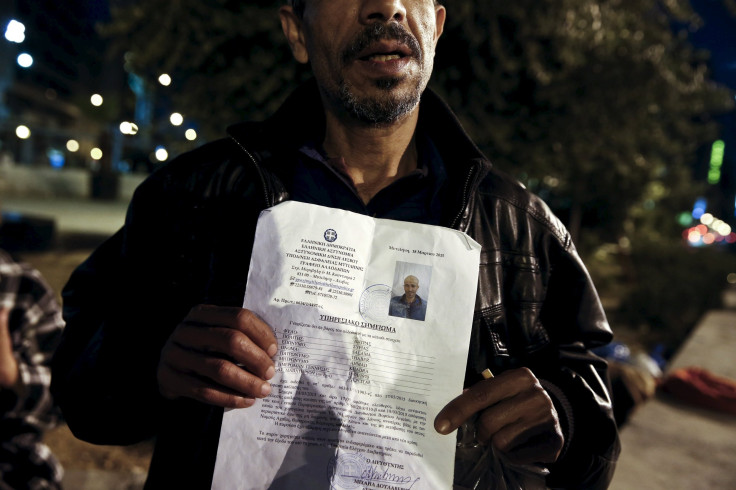Greek Government Says At Least 18,000 Migrants Have Reached Its Shores So Far In 2015: Report

The Greek government told the BBC that at least 18,000 migrants have reached the country so far this year using sea routes. Tuesday's report said that the number of migrants, who reached Greece in 2015, was much higher than that recorded in 2014 during the same period.
The BBC report said that the Greek coast guard has been picking people out of the sea off the island of Leros, near the Turkish coast, almost on a daily basis.
The latest revelations come nearly a month after the coast guard said the number of illegal migrants arriving in Greece more than tripled in the first three months of 2015 compared to the same period in the previous year, Agence France-Presse reported. Moreover, in March alone, 6,493 undocumented migrants had reportedly entered Greece.
On Monday, Turkish authorities said they stopped over 200 migrants from entering Greece through Turkey over the past few days. The authorities also said, according to the Associated Press, that they captured 71 other people, who were traveling on inflatable boats on Sunday, including 38 Afghans and 33 people from Myanmar. In a separate operation, the Turkish coast guard captured 84 migrants, mostly of Syrian nationality, who were traveling in three different boats.
On Saturday, Turkish authorities stopped 57 Syrian migrants, including four babies, traveling on a small boat, from reaching the Greek island of Kos.
This year, more than 35,000 people have attempted to cross the Mediterranean to reach Europe from Africa, while over 1,700 people have died during the commute. Since 2000, over 40,000 migrants have reportedly died in the region.
Last month, the European Union also pledged to “do more” to protect refugees after one of the deadliest recorded accidents in the Mediterranean killed nearly 900 migrants.
“The European Union will help front-line Member States under pressure and co-ordinate the resettlement of more people to Europe on a voluntary basis, and with an option for emergency relocation. For those who do not qualify as refugees, we will operate an effective returns policy,” European Council President Donald Tusk, reportedly said in a statement, adding: “We have agreed to triple the resources available to Triton, our border mission in the Central Mediterranean, and to enhance its operational capability. The mission will continue to carry out its mandate and respond to distress calls where necessary.”
© Copyright IBTimes 2024. All rights reserved.












